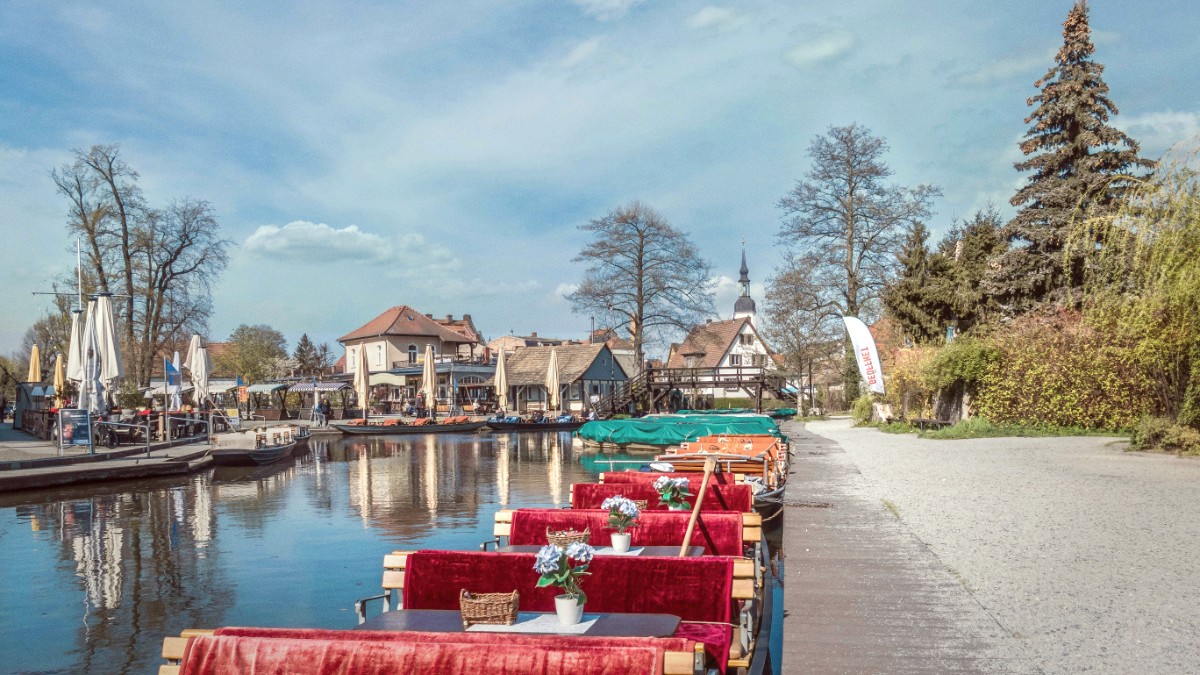
Germany
Local SIM cards are available from major German mobile providers like Telekom, Vodafone, or O2. Purchase them at electronics stores or larger supermarkets. A passport is necessary for registration.
Wi-Fi is widely available in hotels, guesthouses, and many restaurants and cafes throughout the Spreewald. Connection speeds are generally reliable.
Deutsche Post operates offices in larger towns for sending postcards or packages. Post boxes appear yellow.
Learning a few basic German phrases demonstrates respect for local culture.
An effort to use basic German phrases enhances your experience, even with imperfect pronunciation.
Knowing typical operating hours supports trip planning.
Most shops Monday-Saturday, 9 AM/10 AM to 6 PM/8 PM. Smaller shops in rural areas may close earlier. Most shops in Germany are closed on Sundays.
Lunch service typically 12 PM to 2 PM. Dinner service usually begins 5 PM/6 PM and continues until 10 PM/11 PM. Many restaurants close for an afternoon break.
Opening hours vary by season. High season (summer) generally sees longer hours (10 AM to 5 PM/6 PM). Many museums and attractions are closed on Mondays.
Banks typically open weekdays from around 9 AM to 4 PM, often with a lunch break. Automated Teller Machines (Geldautomat) widely exist 24/7 in towns like Lübbenau, Lübben, and Burg.
Many tourist services in the Spreewald, including some boat rentals, smaller guesthouses, and niche museums, reduce hours or close entirely during the low season (November-March).
Verify the specific opening hours for all attractions and restaurants. This applies especially when traveling during the shoulder or low season, or on a public holiday.
Familiarity with local customs enriches your visit.
A firm handshake is common upon meeting someone new or in formal settings. Use "Sie" (formal "you") with strangers, service staff, or in formal situations. "Guten Tag" (good day) is a standard greeting.
Tipping is customary but not mandatory. Round up the bill or add 5-10% for good service. State the total amount you wish to pay, including the tip. Do not leave money on the table.
Avoid discussions about WWII, especially trivializing it. Punctuality holds high value in Germany; strive to be on time for appointments or reservations. Germans generally value direct communication.
Germany generally has progressive policies. LGBTQ+ rights are protected by law; discrimination based on sexual orientation or gender identity is illegal.
For specific accessibility needs, plan your trip carefully. Contact accommodations and activity providers directly in advance to confirm their accessibility. Local Tourism Offices remain your best resource.
The Spreewald, an UNESCO Biosphere Reserve, models sustainable development.
The Spreewald Biosphere Reserve safeguards its unique ecosystem and cultural landscape. Conservation efforts focus on water quality, species protection (otters, beavers), and traditional agricultural practices.
Mindful use of resources and carbon offsetting contribute to responsible travel. Carry a reusable water bottle; Germany's tap water is safe and palatable.
Sorbian culture constitutes a living part of the Spreewald. Efforts preserve their language, traditions, and customs. Be open to learning about their unique way of life.
Your travel choices influence the local community. Support local family-run guesthouses, restaurants, and small businesses.
Explore gently, minimizing environmental impact. Dispose of all waste properly in designated bins. Avoid littering at all costs.
Adopt the slower pace of life in smaller villages. Respect the privacy of local people and their traditions.
Prioritize buying from local producers and artisans. Look for products with the "Spreewälder" label for authenticity.
Buy your Spreewald pickles directly from a local pickle stand or a small shop. This supports the producers who sustain this tradition.